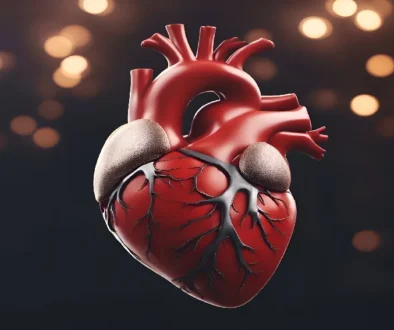How Safe is Your Heart Amidst COVID-19 Pandemic?
COVID-19 and Heart
COVID-19 and life-threatening complications involving severe respiratory distress and lung disease go hand in hand. This is what the majority of us are aware of, but there is yet another dangerous outcome emerging out from the disease caused by the new coronavirus (COVID-19). It is heart damage – one of the recently emerging complications among the group of potentially life-threatening complications.
COVID-19 has so far remained puzzling for many as illness associated with it ranges from mild asymptomatic to moderate symptomatic and complex severe illness – which, in some cases, can be fatal. However, for the large majority of people, the illness remains in the mild-to-moderate range.
Amidst all such conditions COVID-19 causes, some people develop heart-related conditions unexpectedly or due to ramifications of pre-existing heart disease.
Cardiac Damage Due to COVID-19
From the reports coming out from the epicenter of Coronavirus (COVID-19) outbreak – Wuhan city in China, among the 42 patients hospitalized nearly 13% or six patients had heart-related complications – blood tests results had increased levels of troponin and abnormal electrocardiogram and echocardiogram reports. From these findings, among the group of complications that COVID-19 can cause, heart injury or cardiac damage is also one of them. There are some reports of patients with COVID-19 whose symptoms were cardiovascular.
How Does the New Coronavirus Induce Heart Damage?
Infection caused by COVID-19 can pose a potential threat to life for people with heart disease compared to those who are healthy (without heart disease). This means individuals with symptoms of heart disease or pre-existing heart disease are at increased risk for severe respiratory and cardiovascular complications owing to COVID-19 infections.
Respiratory infections like flu could lead to heart damage and heart attacks – according to research studies.
First Scenario
Some people with coronavirus infection who are presented with heart disease symptoms could have had previously undiagnosed heart disease masked by either no symptoms or silent cardiac symptoms – which may get unmasked by coronavirus infection.
Second Scenario
In some people with pre-existing heart disease (blocked artery), coronavirus infection, fever and inflammation can damage plaques inside the blood vessels thus inducing a heart attack. In addition, inflammation and fever can also render the blood more prone to clotting. Apart from this, viral infections like COVID-19 can also hamper body’s natural defense that acts against blood clots. In all these circumstances, heart disease risk increases with COVID-19 infection.
Third Scenario
This is the case with people who neither have any pre-existing heart disease nor any silent symptoms – they are relatively healthy. Plaques and arteries with calcified fatty acid blockages are not the prominent cause of heart attack in such individuals. However, this category of people still experiences heart attack which is similar to classic heart attack owing to injury caused to heart muscles.
Let us understand how this happens
the damage to the heart muscle is induced by an infection caused by COVID-19 that can trigger a condition that may lead to insufficient oxygen supply to the heart in circumstances requiring huge oxygen (a mismatch between oxygen supply and demand). The reason for this mismatch is the fact that during fever and inflammation episodes metabolic rate and heart rate increase posing huge demands on multiple organs and on the heart as well.
This situation is aggravated if the burden on the already crippled lungs increases because severely infected lungs are incapable of working efficiently to meet the increasing oxygen demands. Thus, inefficient gas exchange can further hamper oxygen supply to the heart.
Fourth Scenario
This category of people is healthy – they don’t have any existing heart disease. In some people falling under this category with no underlying heart conditions, infection with COVID-19 can cause damage to the heart muscle by causing inflammation of the heart muscle. This could be due to coronavirus directly infecting the heart muscle. When this happens, the inflammation can induce heart muscle damage, heart rhythm problems, and disturbances in heartbeats – thus affecting the ability of the heart to pump blood efficiently.
Bottom Line
An infection caused by a coronavirus (COVID-19) may induce damage to your heart in several ways. The risk of damage to the heart is akin for all irrespective of whether one has heart disease or not. In fact, COVID-19 (coronavirus infection) poses a huge risk factor for your heart and it is a big acid test (stress test) for your heart. In a nutshell, heart inflammation due to coronavirus infection can happen to people who look seemingly healthy and without any pre-existing risk factors. Heart inflammation can often be life-threatening.




